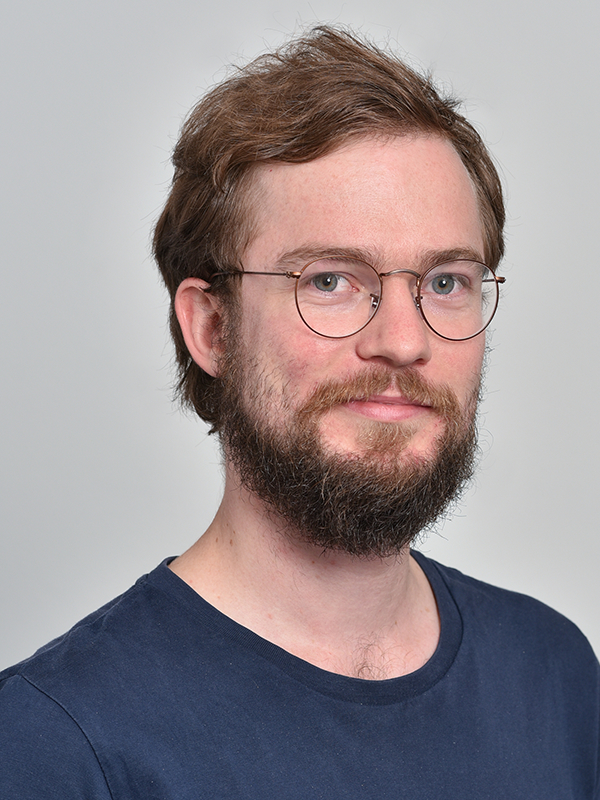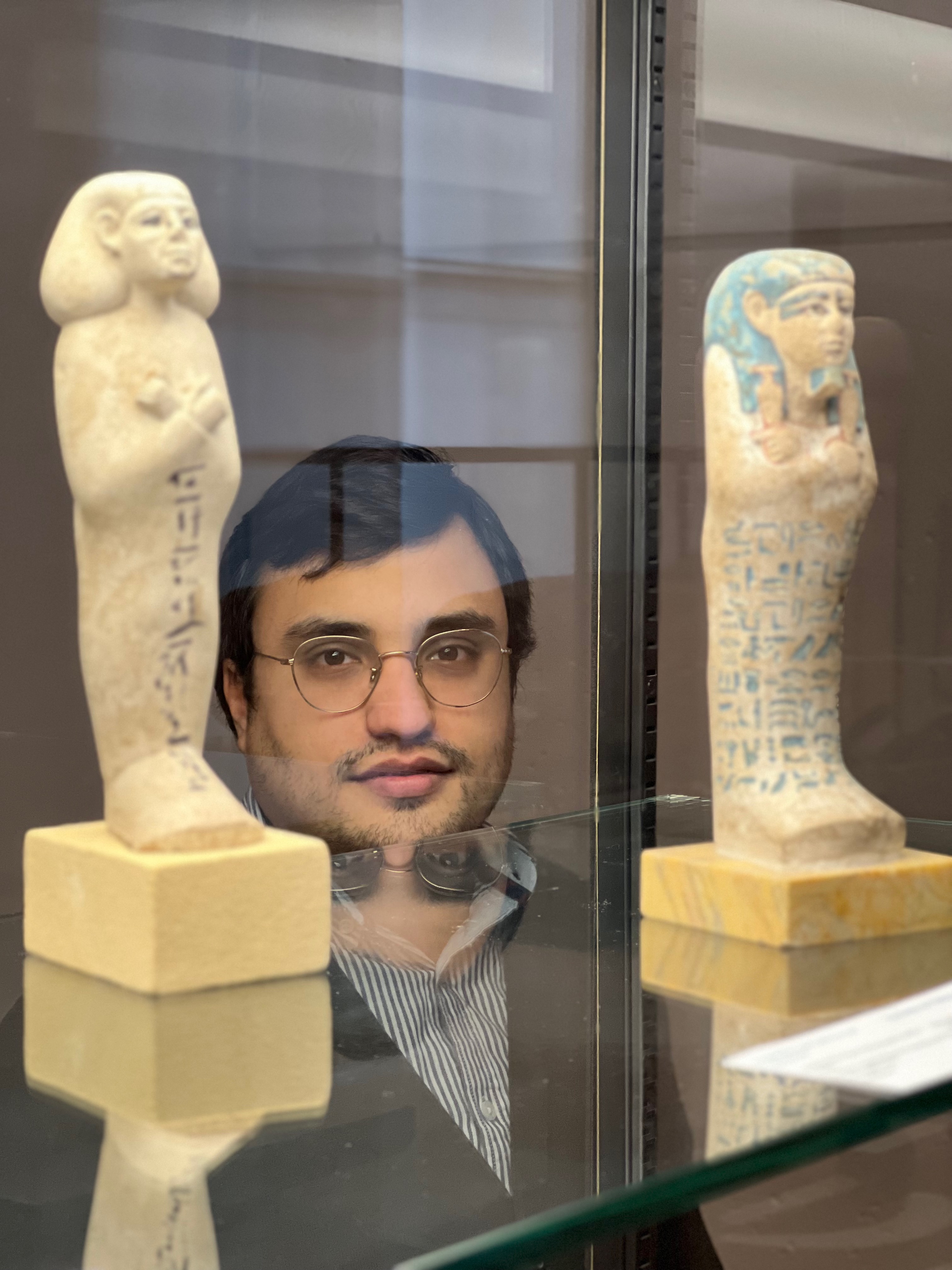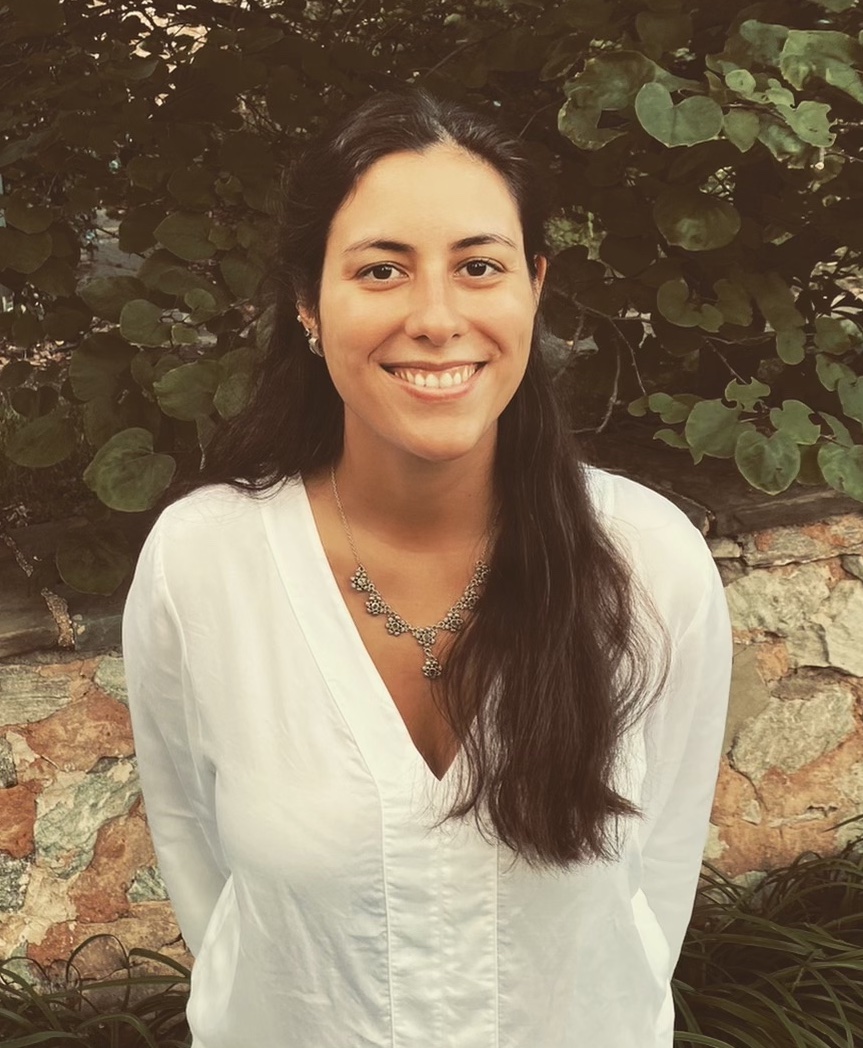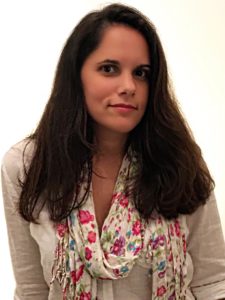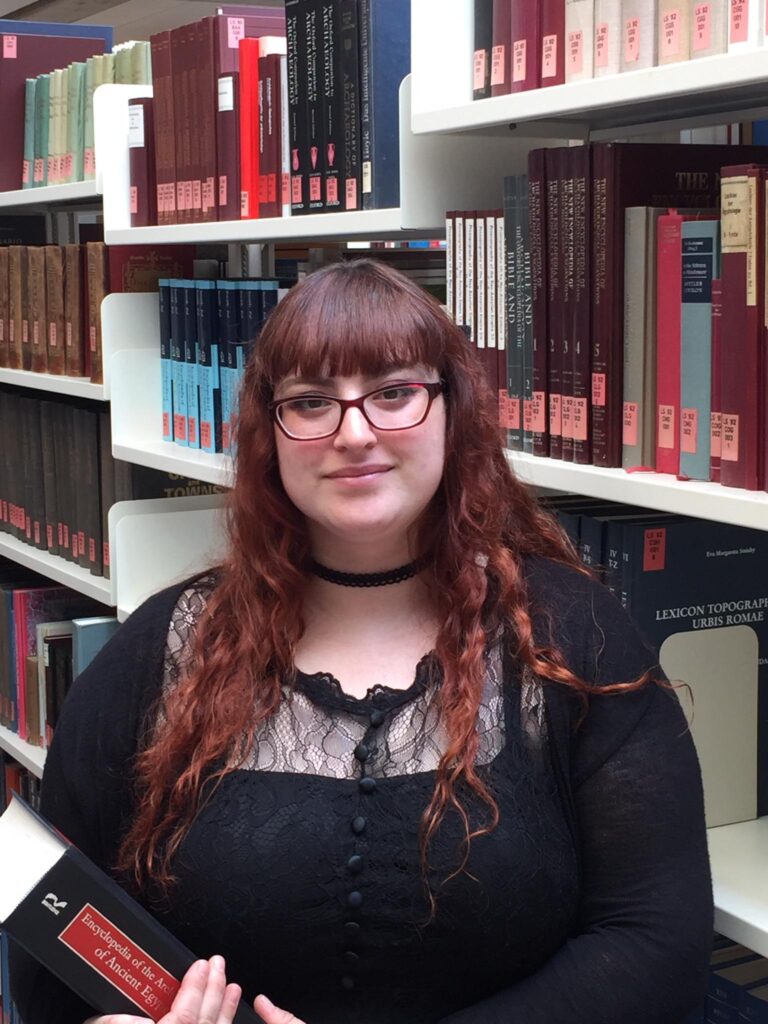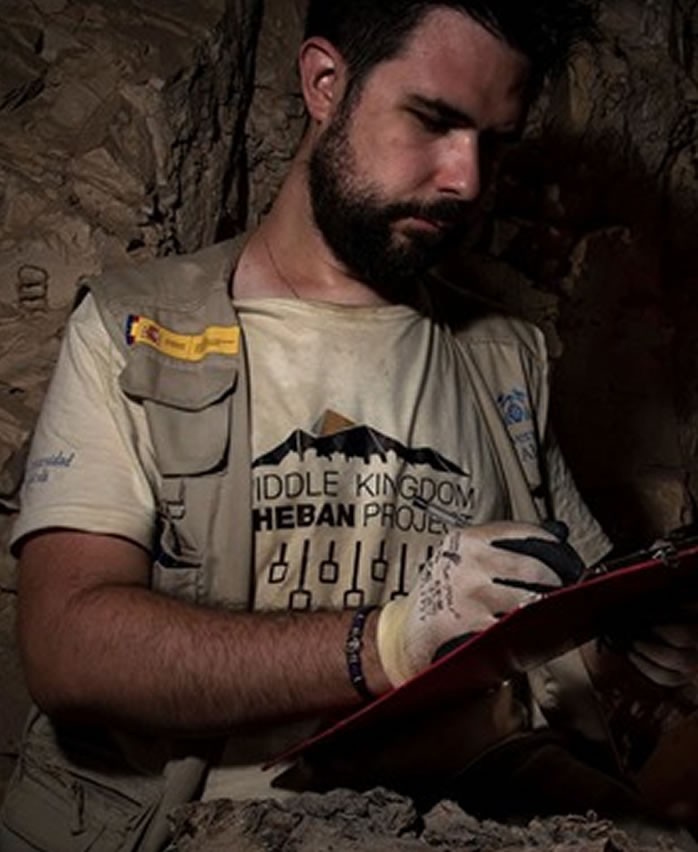Geirr Kristian Homme Lunden, University of Basel, Switzerland: 2023-2025
Geirr Lunden was Chair of the Permanent Committee (2024-2025). He is a doctoral student at the University of Basel in Switzerland, situated in both the Department of Ancient Civilizations and the graduate school eikones – Center for the theory and history of the image. He has previously attained his MA(Res) in Egyptology at Leiden University’s department of Classics and Ancient Civilizations in the Netherlands, and his BA in Egyptology at Swansea University in Wales. For his PhD research, Geirr focuses on the concept of artistic tradition in ancient Egyptian society, and how the modern idea of what a tradition should be like has affected the way in which we perceive meanings and practices that were part of ancient Egyptian lives. Materially, the focus is on images of the Nile marsh in ancient Egyptian tombs of the Old through the New Kingdom, and Egyptological art history of the 19th and 20th centuries. As such, his research interests are particularly embedded in the art history of ancient Egypt, and the scientific history of Egyptology. In both topics, he has a particular focus on the consideration of over- and underrepresented views. He was also the head of the organizing committee at the CRE 2023 in Basel.
Anna Charlotte Dietrich, Austrian Archaeological Institute: 2023-2025
Having studied Egyptology and Communication and Media Studies at the Universities of Leipzig and Leiden (2013-2019), Charlotte Dietrich is currently a PhD-candidate at the University of Vienna, Austria. Her dissertation focuses on the Historical Chronology of the New Kingdom, a topic which she has also pursued as a praedoc in the ERC-project “Challenging Time(s)” at the Austrian Academy of Sciences (2020-2023). Other research interests include cursive scripts (hieratic, abnormal hieratic, and demotic), digital epigraphy, and object itineraries. She has worked on several scientific projects, including the Thesaurus Linguae Aegyptiae and the DFG-project „Vorarbeiten zu einer Grammatik der hieroglyphischen Urkunden der 18. Dynastie“ (both in Leipzig) and has published her research both in scientific formats as well as for a popular audience.
Guilherme Borges Pires, Centre for the Humanities, Nova University Lisbon, Portugal (CHAM/NOVA-FCSH): 2023-2025
Guilherme Borges Pires holds a BA in History (2013) and a MA in Egyptology (2015). Currently, he is a PhD candidate in Ancient History (Egyptology) at NOVA School of Social Sciences and Humanities (Lisbon, Portugal). His research focuses on the concepts of Creator and Creation in the religious hymns of the New Kingdom (ca. 1539-1077 BCE), of which he is preparing a first translation into Portuguese. In 2017, he was awarded an FCT PhD Grant. From 2016 to 2017, he proceeded with his doctoral research and attended courses at École Pratique des Hautes Études (Paris, France), and he volunteered at the Egypt Exploration Society (London, United Kingdom) between 2020 and 2023, working with both Egypt Travel Magazines and Amarna Object Cards. He is a Researcher at CHAM (NOVA FCSH-UAc) and a member of Res Antiquitatis – Journal of Ancient History’s Editorial Team. Since 2022, he has been a lecturer of the online Egyptological programs at the Universidad de Alcalá (Spain). Guilherme is also the co-host of a podcast about ancient Egypt in Portuguese, titled Três egiptólogues entram num bar (“Three Egyptologists walk into a bar”).
Dr. Inês Torres, Centre for the Humanities, Nova University Lisbon, Portugal (CHAM/NOVA-FCSH): 2022-2024
Inês Torres was Chair of the Permanent Committee (2023-2024). Dr. Torres is a Postdoctoral Research Fellow at the Centre for the Humanities of Nova University Lisbon (CHAM/NOVA-FCSH) and Director of the Mastaba of Akhmerutnisut Documentation Project (MAD-P), Giza, Egypt. She has a Ph.D. in Egyptology (Near Eastern Languages and Civilizations) from Harvard University, an M.Phil. in Egyptology from the University of Oxford, and a B.A. in Archaeology from the University of Lisbon. Her research focuses on the topic of memory and remembrance in ancient Egypt, emphasising the physical and visual aspects of the ancient Egyptian tomb as important mechanisms of persuasion in the production, construction, and negotiation of memory. In her postdoctoral research, she explores the role of the tomb as a social space, developing an interdisciplinary approach for understanding how individual and collective memories regarding deceased individuals were shaped by the physical space and decoration of their tombs. Dr Torres has published in English and in Portuguese (her first language), both for the general public and in academic publications. She has participated in several archaeological excavations, in Portugal and Egypt, and has extensive experience working for museums, such as the Boston Museum of Fine Arts, the Egyptian Museum in Berlin, and the Harvard Art Museums. Dr Torres is also the founder and manager of the Instagram outreach project “Uma Egiptóloga Portuguesa” (“A Portuguese Egyptologist”), which aims to share educational content on Ancient Egypt and Egyptology in Portuguese. She is also co-founder and co-host of the first scientific dissemination podcast about ancient Egypt in Portuguese, Três Egiptólogues Entram Num Bar (“Three Egyptologists Walk into a Bar”).
Dr. Electra Apostola, University of the Aegean, Greece: 2021-2023
Electra Apostola was Chair of the Permanent Committee (2022-2023). Dr. Apostola completed her doctoral dissertation in Egyptology at the Department of Mediterranean Studies at the University of the Aegean in 2016. Since then she has been teaching the following undergraduate courses: Egypt and the Eastern Mediterranean in the Early Iron Age, Egyptian Art, Near Eastern Archaeology, Relations between peoples of the Mediterranean in the Bronze Age at the same University. She is currently participating as a research fellow in the AEgySca Project: Aegyptiaca as indicators of religious and cultural interaction in the Southeastern Mediterranean: The multiple implications of Egyptian and Egyptianizing scarabs in the Aegean (8th-6th century BC) (University of the Aegean). Since 2014 she has been participating as a coordinator in the Aegyptiaca Project (AeP): Ecumene and Economy on the Horizon of Religion (University of the Aegean-University of Bonn). Her research interests and her publications focus on cultural interconnections in the Near East and the Eastern Mediterranean during the LBA and the Iron Age, Egyptian and Egyptianizing artifacts in Archaic Greece, modes of adaptation and transformation of Egyptian religious motifs and ideas in the Mediterranean. She was also one of the organizers of the international virtual conference Current Research in Egyptology 2020/2021 in Rhodes (University of the Aegean). She was chair of the CRE Permanent Committee from 2022 to 2023.
Ms. Jacqueline M. Huwyler, University of Basel, Switzerland: 2021-2023
Jacqueline is a doctoral student in Egyptology in the University of Basel’s Department of Ancient Civilizations. Her research focuses on the introduction of the Near Eastern deity Anat into Egyptian religion from as early as the Second Intermediate Period to the end of the New Kingdom. Her research attempts to return agency to the people behind the artifacts, to better understand cultural contact and its resulting influence on Egyptian culture and religion, both at a governmental and non-governmental level. Why was Anat so intriguing to the Egyptian population, and how and why did information about her spread? To analyze this, Jacqueline has compiled a publishable database of all known evidences of Anat up until the end of the New Kingdom. Jacqueline holds an M.A. with distinction in Egyptian Archaeology from the University College London (UCL), and a B.A. cum laude in Classical and Near Eastern Archaeology from Bryn Mawr College (Pennsylvania, USA). As a specialist in Egyptian identity studies and foreign interactions, Jacqueline’s masters thesis focused on cultural contact and identity at 12th and 13th dynasty Egyptian fortresses in Nubia. Jacqueline is published with Archaeopress, has excavated in Thebes, Cyprus, Jerusalem, and Kent (Britain), and has worked for numerous museums, such as the University of Pennsylvania Museum of Archaeology and Anthropology, the UCL Petrie Museum of Egyptian Archaeology, and the Antikenmuseum Basel. She also has experience organizing conferences, and has been active in the CRE since 2017. In her free time, Jacqueline works as a freelance editor and translator for Egyptological and Archaeological papers in English and German.
Dr. Khaled Essam Ismail, Grand Egyptian Museum, Egypt: 2021-2023
Khaled Ismail is an archeological curator at the Grand Egyptian Museum in Egypt. Dr. Ismail completed his dissertation entitled “the City of Diospolis Magna (modern Luxor) during the Ptolemaic and Roman Period.” Since 2008, he has been working in the Ministry of Tourism and Antiquities in Egypt. He is responsible for documenting and registering The Greco-Roman artifacts in the Grand Egyptian Museum and various museums in Egypt. He recently participated in the French/Egyptian project of establishing the Egyptian Numismatic Center in Egypt. Since 2015, he has been participating as a scientific member in the American mission working at the site of Amheida, Dakhala Oasis, under the supervision of Professor Roger Bagnall. His research interests are the material culture of Egyptian society during the Late period until the Roman period in Egypt. He also focuses on studying the Roman coins of Egypt and has some publications in these fields of interest.
Dr. Raúl Sánchez Casado, University of Sevilla, Spain: 2019-2022
Raúl Sánchez Casado was Chair of the Permanent Committee (2021-2022). Dr. Sánchez Casado is a postdoctoral researcher at the University of Granada (Spain). He is a Doctor in Egyptology by the University of Seville with a PhD thesis on the ka-servant in the Old Kingdom. He holds a BA degree in History and a MA in Sciences of the Antiquity and the Middle Ages from the University of Granada. His main research interest is ancient Egyptian religion, particularly the funerary sphere, focusing on the nature of priesthood and cultic practices. He has developed funded research stays at the University of Oxford and the Freie Universität Berlin. His publications include a book, several peer-reviewed journal papers, book chapters, and co-editions of scientific books and proceedings. He has delivered papers in several international congresses and seminars and has also organized scientific meetings in Spain. He is deputy director of the MKTP and has obtained archaeological experience through his participation in the project.
Dr. Marie Peterková Hlouchová, Czech Institute of Egyptology, Charles University, Czech Republic: 2018-2021
Marie Peterková Hlouchová was Chair of the Permanent Committee (2019-2021). Dr. Peterková Hlouchová graduated in Egyptology and History (MA programme) at the Faculty of Arts, Charles University in Prague, where she also finished the doctoral study programme. She focuses on the Old Kingdom religion and she is also interested in wooden coffins from the 1st Millennium BC found in Abusir. Since 2015 she has participated in the archaeological excavations in Egypt and in Sudan. She is an editor ofPrague Egyptological Studies. She is also one of the organisers of the international student conference Current Research in Egyptology (CRE) 2018 in Prague. For the years 2018–2021 she was a member of the Permanent committee of CRE. From 2020 she was a postdoc researcher in the KREAS project (Creativity and adaptability as conditions for the success of Europe in an interrelated world) and for 2023–2025 she is the principal investigator of the GAČR project 23-04989S “Ancient Egyptian Burial Containers of the Old Kingdom and First Intermediate Period. Evolution, Contextualisation and Significance”.

Dr. José Alba Gómez, Jaén University, Spain: 2018-2021
José M. Alba Gómez fulfilled the role of webmaster for the CRE website. Dr. Alba Gómez is currently a research fellow at the University of Jaén, at the Dept. Antropología, Geografía e Historia, Área de Historia Antigua, where he was previously Junior Research Fellow (2016 – 2019 and 2021 – 2022). He was also a researcher Ludwig-Maximilians-Universität – LMU (2023). He collaborates as professor in the Master’s Degree in Egyptology at the University of Alcalá. He finished his PhD thesis (2016) titled “Olive tree cultivation and oil production in Ancient Egypt”. His primary areas of interest are concerned with different aspects of Ancient History, Egyptology, Archaeology and funerary material culture, mostly pottery. He has obtained field experience through his participation in various archaeological projects in Spain and abroad (France, USA, Germany and Sudan). Director of Qau el-Kebir Expedition (Asyut, Egypt) since 2024, co-director of the Qubbet el-Hawa Project (Aswan, Egypt) since 2016 and member since 2009. He is part as an archaeologist, ceramologist and researcher in several projects in Egypt: the Japanese-Egyptian mission in Saqqara North of the University of Kanazawa, the Middle Kingdom Theban Project of the University of Alcalá and Qubbet el-Hawa North, of the Egyptian Museum of Berlin.

Dr. Marwa Abel Razeq, Egyptian Museum Cairo, Egypt: 2018-2021
Dr. Ilaria Incordino, Grantee of of the Shelby White and Leon Levy Program for Archaeological Publication, Harvard University: 2017-2019
Ilaria Incordino was Chair of the Permanent Committee (2018-2019). Since 2007, Dr. Ilaria Incordino has participated in several archaeological missions in Egypt (Archaeological Mission in the Eastern Desert (Egypt), University of Naples “L’Orientale”, University of Cairo, University of Helwan; Archaeological Mission at Mersa/Wadi Gawasis (Egypt), University of Naples “L’Orientale”, Boston University). She obtained a BA and PhD in Egyptology at the University of Naples “L’Orientale” with a dissertation about the “Chronological Problems of the IIIrd Egyptian Dynasty. A re-examination of the archaeological documents”. She also taught Egyptology for BA students (72 hours) and organized several conferences, seminars and summer schools (2019 Summer School “The Pottery of the Nile Valley. Classification, documentation and new methodology of analysis”; 2017 CRE 2017 Current Research in Egyptology conference; 2015 Seminar “Flora Trade between Egypt and Africa in Antiquity”, 2008 the ”First Neapolitan Congress of Egyptology”) at the University of Naples “L’Orientale”. She is author of several papers and a monograph about Bet Khallaf site, and is currently Deputy Director of the Italian-Egyptian Archaeological Mission at the Monastery of ‘Abba Nefer’ at Manqabad (Asyut, Egypt), University of Naples “L’Orientale”.

Dr. Julia Hamilton: 2016-2018
Julia Hamilton was Chair of the Permanent Committee (2017-2018).
Dr. Wojtek Ejsmond: 2016-2018
Dr. Maxwell Stocker: 2016-2018
Dr. Solène Klein: 2015 -2017
Solène Klein was Chair of the Permanent Committee (2016-2017).
If you are a previous member of the Permanent Committee and would like to have your photo and/or biography listed on our page, please contact us at crepermanentcommittee@gmail.com.

